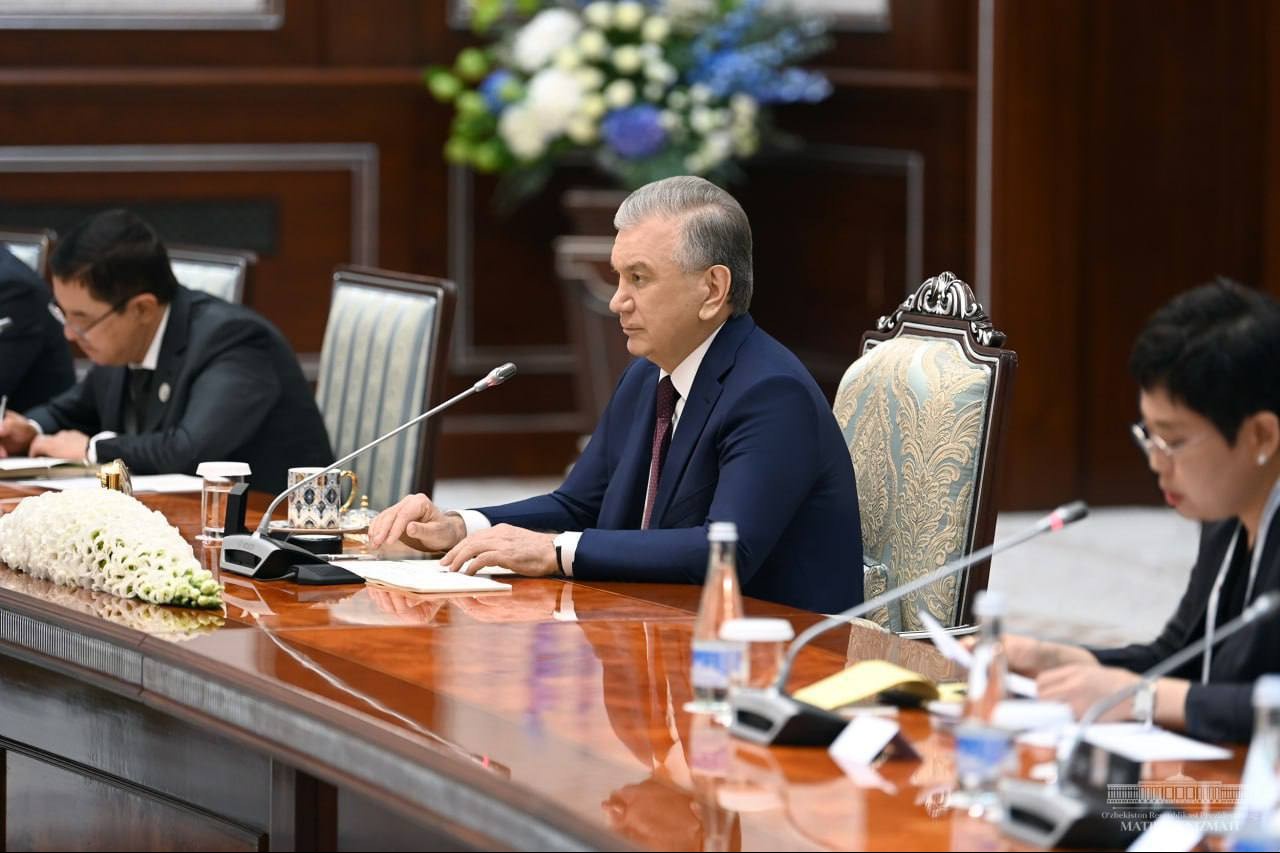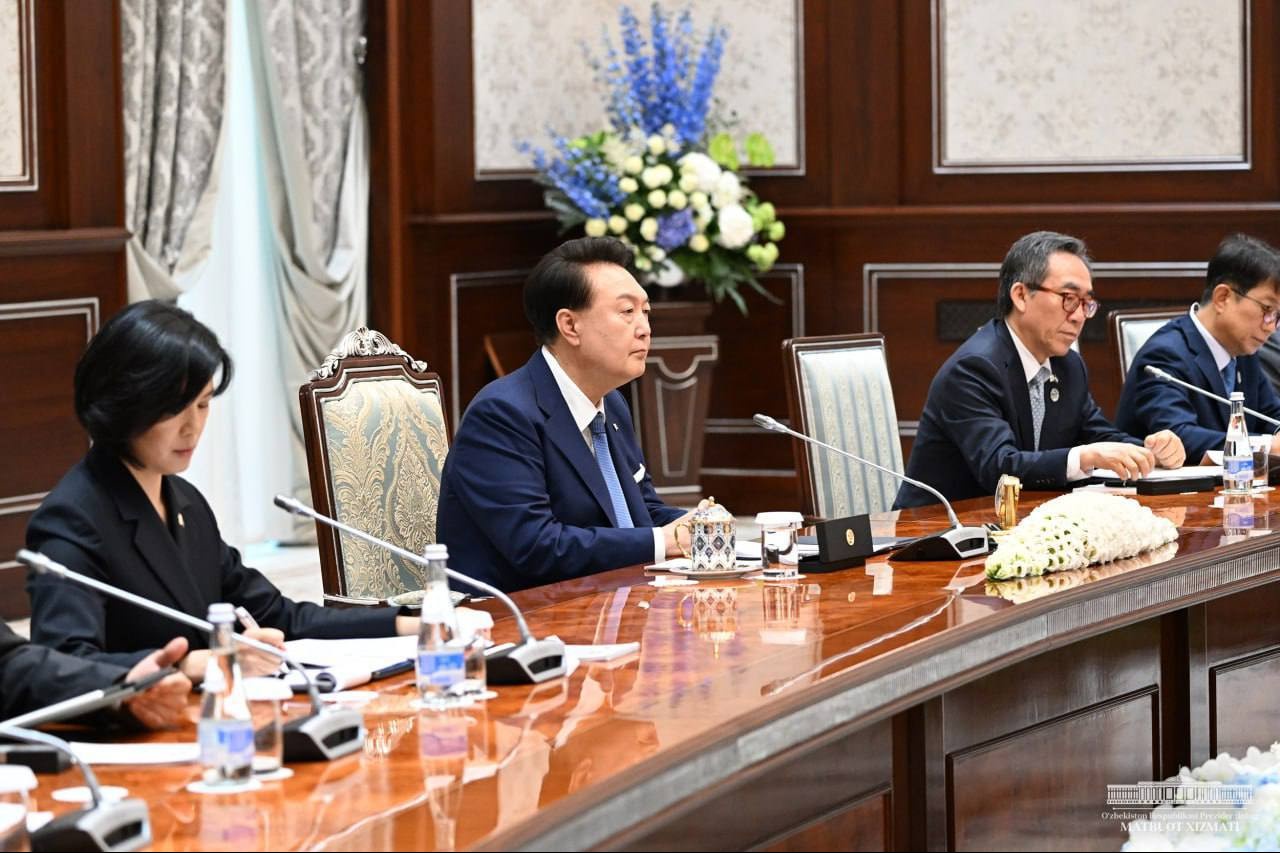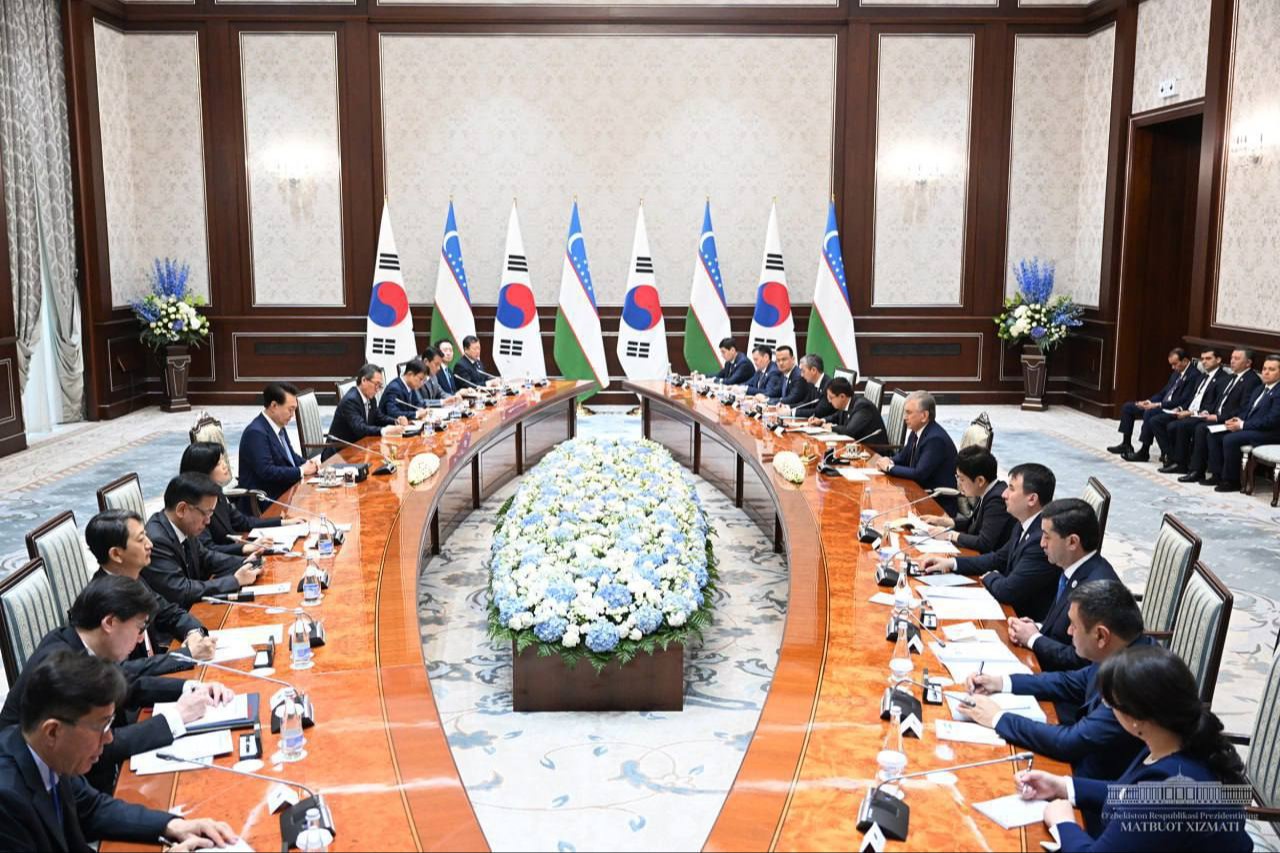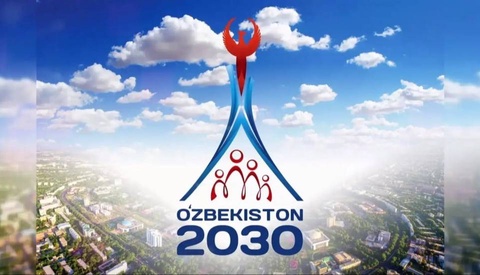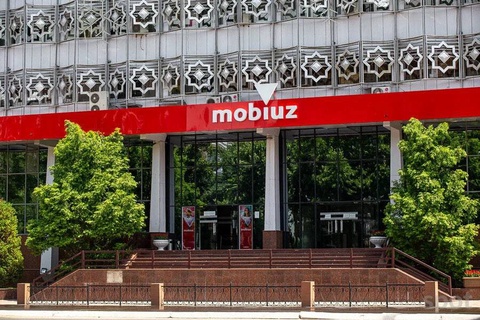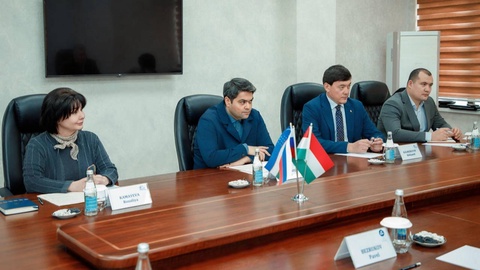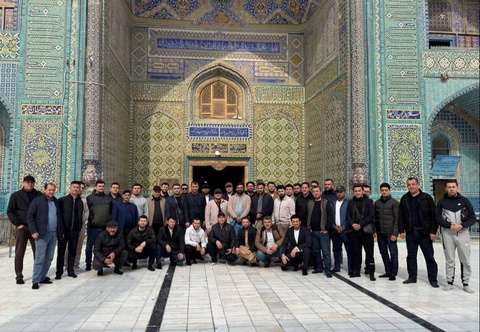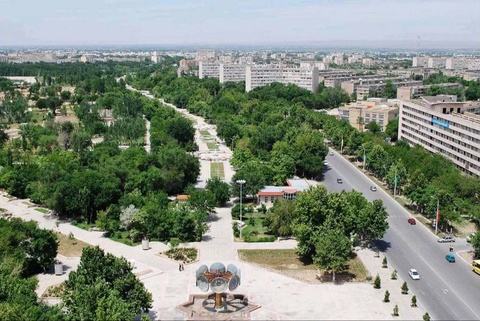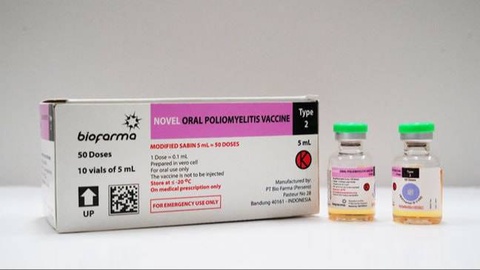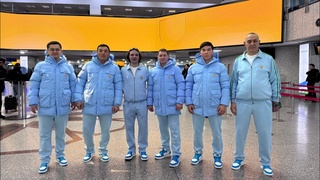Substantive discussions were held on further developing and deepening the special strategic partnership between Uzbekistan and Korea, covering all areas and directions of interstate interaction.
“We consider your state visit to Uzbekistan at the head of a representative delegation as another confirmation of the great attention to the development of multifaceted cooperation with Uzbekistan and the region”, noted the President of Uzbekistan.
The Republic of Korea is a key partner in Uzbekistan’s dynamic and innovative development. In Uzbekistan, 726 joint ventures have been launched in energy, chemistry, automotive, electrical engineering, textiles, food, and other industries. Korean investments exceeded $7.5 billion, and trade turnover reached $2.5 billion last year.
During the talks, the importance of forming a new high-tech agenda for the special strategic partnership between Uzbekistan and Korea for the next 3 years was noted.
The Head of state took the initiative to declare this period “A new time of high-tech and innovative cooperation between the two countries”.
In this context, governments have been instructed to prepare a strategic program to create a regional high-tech hub in Uzbekistan.
At the same time, several priority areas of interaction have been proposed as the strategy’s “anchor” areas.
The first is the Critical Mineral Resources Partnership. We are talking about deep processing of the resource base and creating a complete added value chain.
Second, strategic cooperation in semiconductors, where the Republic of Korea has traditionally been a global leader. Plans are underway to create the region’s first full-fledged research and production cluster of semiconductor products in Uzbekistan.
Third. Full-scale partnership in the chemical industry. New projects have been prepared for the production of green hydrogen and ammonia, as well as the production of finished rubber products.
Fourth. Deepening cooperation in mechanical engineering. This spring, an assembly line for KIA cars was launched in Jizzakh region. Next year, full-fledged production of the sedan with a capacity of more than 60,000 units per year is planned.
Fifth. Transfer of technologies to create smart agriculture, including through the digitalization of the agricultural sector and the introduction of smart and green technologies.
Agreements have already been reached to create modern greenhouses and garden complexes in Uzbekistan’s regions based on renewable energy sources.
Sixth. Infrastructure modernization and urban development program. Korean banks and companies are highly interested in modernizing transport infrastructure and designing and building residential and commercial real estate based on public-private partnerships.
Seventh. Modern and safe energy. To develop promising projects in green energy and increase energy efficiency, the parties agreed to resume the strategic dialogue at the level of energy ministers and hold its next meeting in Uzbekistan soon.
The successful partnership with the Export-Import Bank of Korea and the Economic Development and Cooperation Fund, the portfolio of joint projects with which has already exceeded $3 billion, was noted with satisfaction.
An agreement was reached on new projects under the EDCF worth $2 billion, including the supply of high-speed electric trains, the implementation of the second stage of the Tashkent Pharma Park project, and the equipment of educational institutions.
It was noted with satisfaction that a new portfolio of projects worth $9.6 billion in the above areas had been formed in preparation for this summit.
The leaders paid particular attention to further enhancing cultural and humanitarian exchange.
A striking example of a fruitful partnership is the modern multidisciplinary children’s clinic, created jointly with the Korean side.
During the talks, an agreement was reached to accelerate the preparation and implementation of medical cluster projects, including creating a university, a hospital for adults, and an oncology clinic.
In addition, a long-term program will be launched to improve the qualifications of medical workers in specialized centers in Korea.
We have accumulated solid experience in cooperation in education. The first Uzbekistan– Korea Rectors Forum took place in March last year, and another meeting will be held next year.
Proposals to create an institute in Uzbekistan based on the model of the Korea Institute of Science and Technology (KIST) were supported.
In addition, plans are being developed to open a Center for Training in Digital Technologies and Artificial Intelligence at the Academy of Public Administration in Tashkent in partnership with the Korea Institute of Public Administration and the National Human Resources Development Institute.
Particular attention was paid to expanding Korean language learning programs, including the involvement of experts from Korea.
It was noted that Uzbekistan citizens were successfully trained in vocational training centers created with the assistance of KOICA in Tashkent, Samarkand, Shakhrisabz, Fergana, and Urgench.
The Korean side expressed support for creating a network of such centers in other regions of Uzbekistan with the involvement of financial and technical assistance.
It was proposed that next year, the “Year of Mutual Exchanges between Uzbekistan and Korea” will be celebrated with cross-curricular cultural events to bring the peoples of the two countries closer together.
In addition, in 2027, the 90th anniversary of the Korean diaspora in Uzbekistan will be widely celebrated.
The parties agreed to open a museum and library in the Korea Culture and Art House in Tashkent by this significant date.
The President of Uzbekistan noted the significant contribution of the Korean side to the development of the Electronic Government, assistance in developing the Digital Uzbekistan strategy, strengthening the potential of the IT Park, and the creation of U-Enter business incubators.
The parties agreed to enhance their partnership in artificial intelligence, business process outsourcing, and digital technologies.
Specific proposals for combating corruption, ecology, labor migration, and other vital areas were also considered.
Following the talks, the heads of state instructed to adopt roadmaps for each area with specific deadlines and implementation mechanisms.


